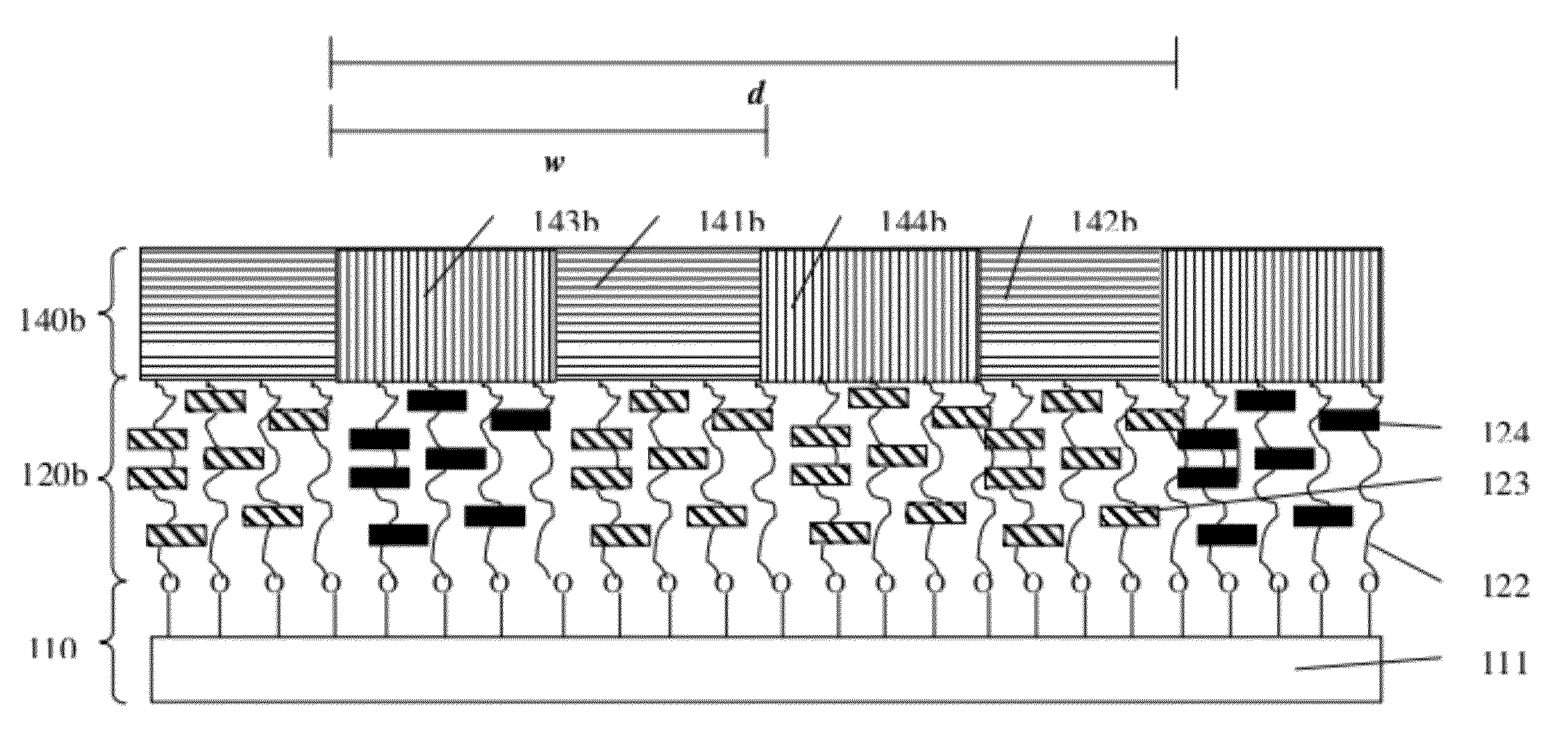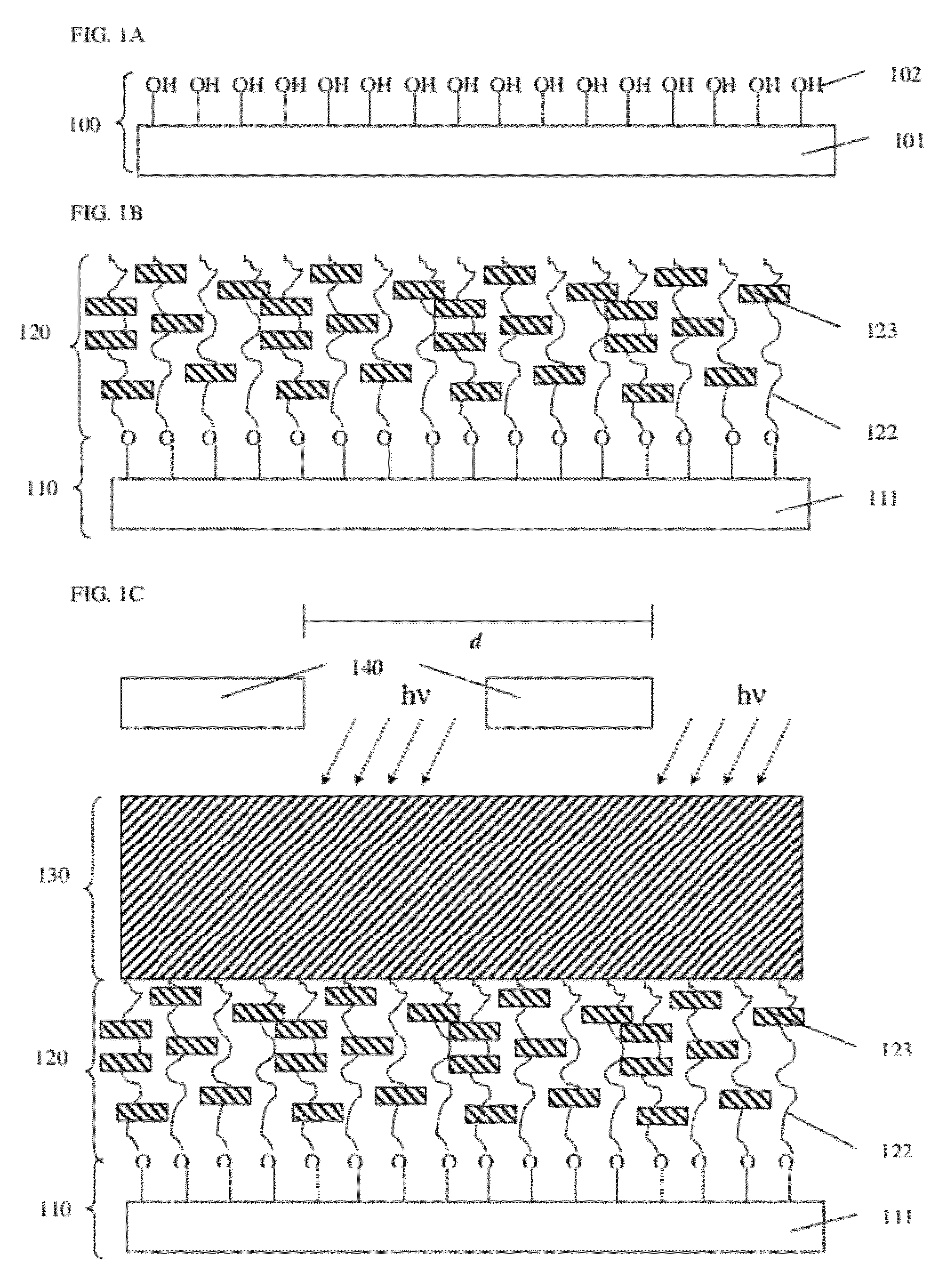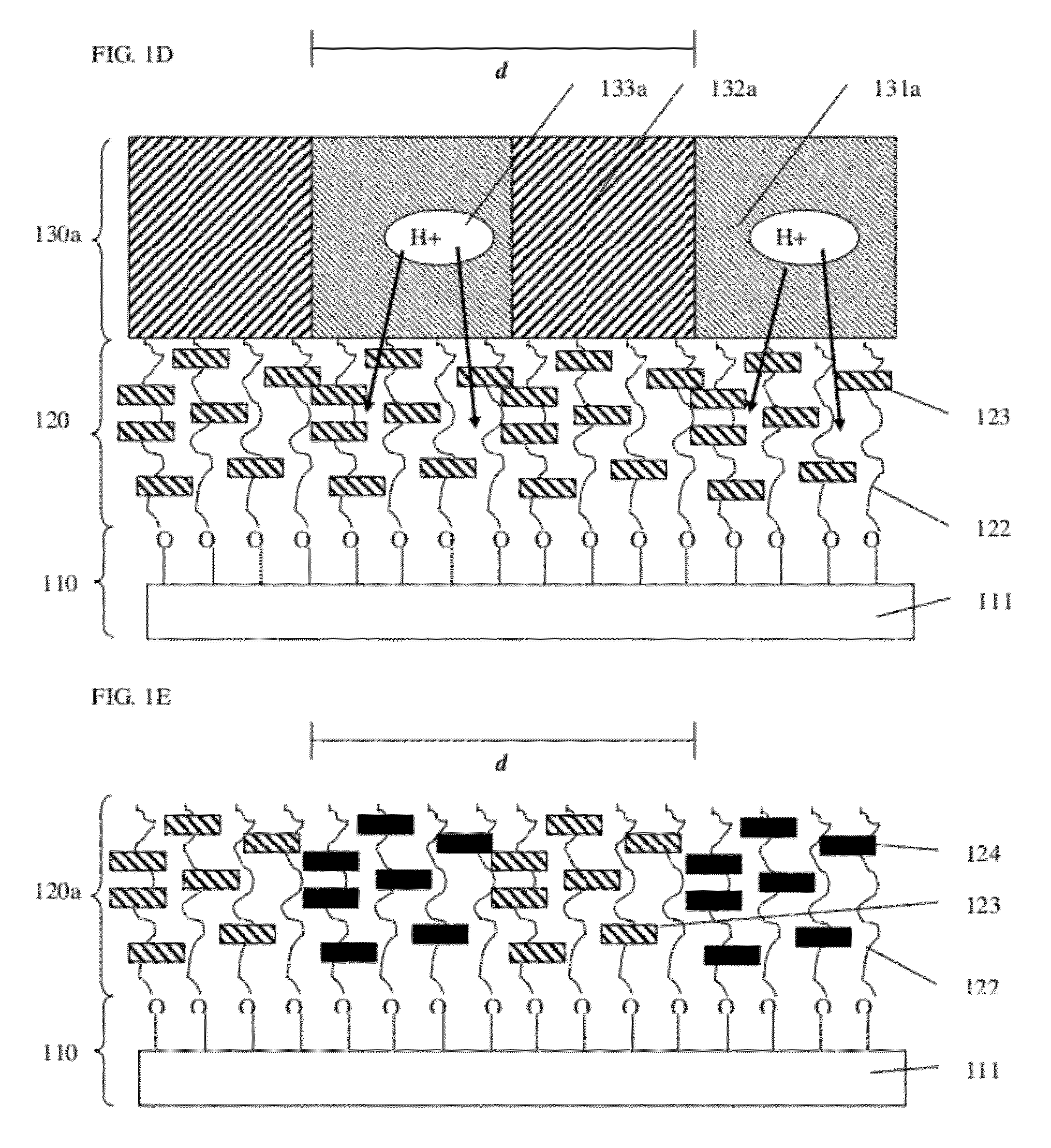Underlayer composition and method of imaging underlayer composition
a composition and composition technology, applied in the field of underlayer composition and composition method of imaging underlayer composition, can solve the problem of no disclosure in the art of adjusting the brush
- Summary
- Abstract
- Description
- Claims
- Application Information
AI Technical Summary
Benefits of technology
Problems solved by technology
Method used
Image
Examples
Embodiment Construction
[0012]Disclosed herein is a novel copolymer underlayer, sometimes referred to herein simply as an underlayer, for directed self-assembly of a block copolymer. The underlayer comprises a random copolymer containing acid decomposable group, an attachment group, and a functional group. The proportion of these monomers is adjustable to moderate surface energies to match those of a self-assembling block copolymer which is formed on the surface of the underlayer. The underlayer copolymer is bonded to a hydrophilic surface of a substrate, including a semiconductor substrate such as, e.g., silicon with native oxide or thermally grown oxide, a titanium dioxide layer, etc., to form a brush layer, may be crosslinked with interpolymer crosslinks to form a mat layer, or may form both surface bonds and crosslinks to provide a crosslinked, surface bonded mat layer.
[0013]A pattern is formed in the underlayer by overcoating the underlayer with a photosensitive layer such as a photoresist containing ...
PUM
| Property | Measurement | Unit |
|---|---|---|
| Fraction | aaaaa | aaaaa |
| Fraction | aaaaa | aaaaa |
| Fraction | aaaaa | aaaaa |
Abstract
Description
Claims
Application Information
 Login to View More
Login to View More - R&D
- Intellectual Property
- Life Sciences
- Materials
- Tech Scout
- Unparalleled Data Quality
- Higher Quality Content
- 60% Fewer Hallucinations
Browse by: Latest US Patents, China's latest patents, Technical Efficacy Thesaurus, Application Domain, Technology Topic, Popular Technical Reports.
© 2025 PatSnap. All rights reserved.Legal|Privacy policy|Modern Slavery Act Transparency Statement|Sitemap|About US| Contact US: help@patsnap.com



